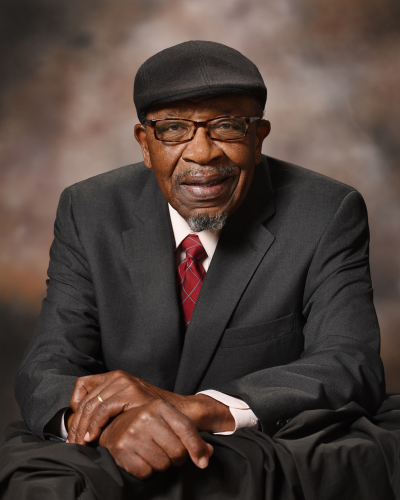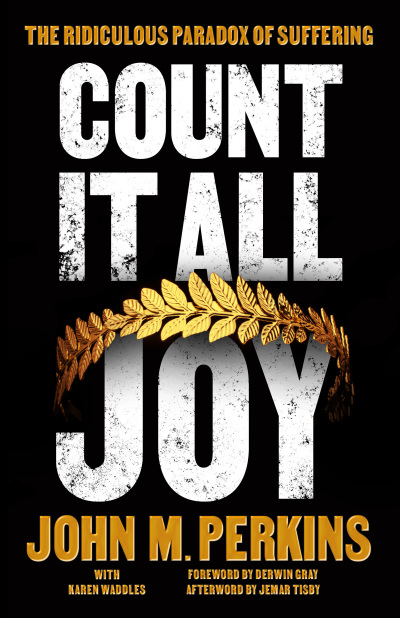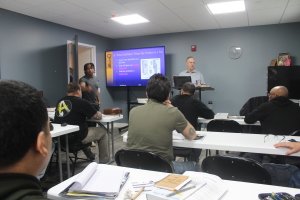John Perkins is facing death and his final message to America is: ‘repent’

John Perkins is dying. He’s dying of old age after multiple bouts with cancer. And at 91, one of America’s most prominent Evangelical voices on civil rights and racial reconciliation wants to send an urgent final message to America: repent.
Repent of your sins and return to God and the centrality of the Gospel.
And to do that, Perkins is convinced Christians must first learn to suffer well to lead the nation into radical deliverance from its errant ways.
“Repentance is the only way back to God. Unless you repent, you will all perish,” Perkins said in a recent interview with The Christian Post. “That was the story of Jonah to Nineveh. They repented. They repented.”
The centrality of the Gospel is defined by church planter Tom Depew as “the belief that the Gospel that saved, is the same Gospel that should be made central in every Christian’s life. Meaning, the Gospel is more powerful than we think, and does more than we could ever imagine.”
In his final book, Count it All Joy: The Ridiculous Paradox of Suffering, published six months ago, the civil rights activist and racial reconciliation crusader presents a compelling narrative on the essential roles suffering and the centrality of the Gospel play in delivering the United States from social maladies like racism, bigotry, strife and pain.
“This is the great paradox of suffering! Suffering drives us deeper in Him. Suffering drives the roots of our faith deep, deep into the reservoir of His sufficiency. With each new privilege to suffer, our roots go even deeper in Him,” Perkins writes in his book.
“And before you know it, we have become like the tree that David spoke of in Psalm 1. We become ‘like a tree planted by streams of water, which yields its fruit in season and whose leaf does not wither—whatever they do prospers’ (Ps. 1:3). Not only are we strengthened to ready ourselves for the next storm, we produce fruit that shelters, nourishes, and encourages others,” he adds.
The book caps a trilogy that includes, One Blood: Parting Words to the Church on Race and Love and He Calls Me Friend: The Healing Power of Friendship, which Perkins refers to as his “manifesto.”
“In those three books, what I have there is an overview of the centrality of the Gospel. That's the idea. What I try to do is to put the centrality of the Gospel in those three books. The issue is what to do with our sin,” Perkins explained. “Someone said we don't have a skin problem. It's really a sin problem.”
Perkins makes a strong case for his premise by sharing stories about his personal suffering. And he has suffered plenty.
His grandmother was a sharecropper. His mother died from malnutrition when he was just an infant. At 16, one of his brothers was killed by police after returning from World War II. When he was 17, he had to flee from Mississippi to California due to racial hatred. He was beaten and jailed by police in the 1960s, as he fought for civil rights. His sister died due to domestic violence. And he's had to bury two of his sons.

“When pain is overwhelming, it can be hard to pull your attention away from the pain and look to Him. It’s hard. When my son Spencer died, it was like that for me,” he recalled in his book of his son who died at age 44 in January 1998 of a heart attack. “It was the most traumatic experience of my life. I felt like a part of me had died. ... Parents are not supposed to bury their children. Children are supposed to bury their parents.”
And both he and his wife, Vera Mae, have battled cancer. They are fighting to stay alive, Perkins said, because they don’t want each other to be alone. Perkins said he has already made his peace with death and is looking forward to going to Heaven because of the lessons he has learned about the Gospel in suffering.
“This is what I’ve learned from knowing this awesome God; this is the reality of the war we fought to the end. Yes, we fought to the very end and found joy in that place. These messages are a witness of how I believe we should live in a world that is fractured by racism, bigotry, strife, and so much pain,” he writes.
“I want more than anything to encourage others to know that you can live a life of sacrifice, loving your enemies, doing good, and suffering for His name. And at the end of it all He promises paradoxical, inexpressible joy.”
On racial reconciliation
At a racial reconciliation event in Alabama last October, Ed Litton, president of the Southern Baptist Convention, America’s largest Protest denomination, told a multiracial Christian audience that indifference to racial prejudice “is killing us” and “we ought to go and work at it.”
That message came after a controversial debate over critical race theory and social justice led some prominent black Southern Baptist leaders to leave the denomination.
Like Perkins, Litton argued that the Gospel is enough to fix racial prejudice, but racial reconciliation also requires intentional action to achieve it because “time doesn’t heal all wounds” and prayer isn’t enough by itself.
“Ignoring doesn’t heal all wounds," Litton added. "Just praying and saying it’s going to get better doesn’t heal all wounds. Believing in a God who heals, yes, that’s what heals wounds. But God also requires that we make intentional treatments of those wounds that we are persistent and consistent with one another, that we are always a source in the Body of Christ, all of our churches, to experience love and prayer and care for one another.”
Litton’s advice aligns with Perkins’ position. In his book, Perkins recommends that if Christians learn to enter into the suffering of their fellow Christians facing racial prejudice, it can help to bring lasting reconciliation.
Perhaps because of people’s aversion to suffering, however, Perkins readily admits that getting people to share in the suffering of others remains a challenge, even among Christians.
“The enemy of our souls has made it really easy for believers in America to choose the way of ease and self-preservation. He has lulled many of us to sleep on beds of comfort and wealth,” Perkins writes. “We are satisfied with ourselves. Pleased with ourselves and all that we have accomplished. But I think He calls us to enter the suffering of other people.”
He further explained in his interview with CP that he believes the Church has “developed a reconciliation that is not biblically based.”
“It's not based on the solution," he said. "The solution is the incarnation of God on Earth, in Jesus Christ, now that's the biblical solution.”
“The theology of racial reconciliation is what throws us off. We are a racialized society,” he contended. “We turned sin into being racial. Sin is disobedience to the Word of God and the commandment of God.”
Perkins urged Christians to stop viewing each other through a racialized lens that departs from what God originally intended when He created one human race.
“He created us to reflect His image in the world,” Perkins said. “And so we were to be like a looking glass. When we looked at each other, we will see God in each other.”





























